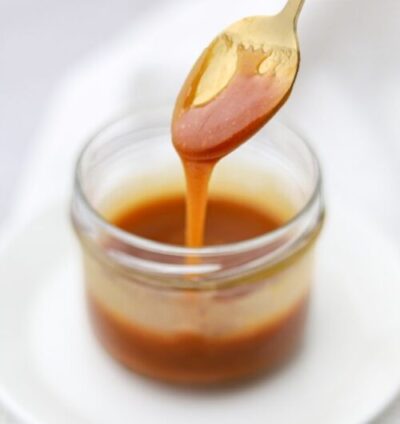Fish is a healthy and delicious choice for a meal, but if you’ve ever cooked it at home, you know that it can sometimes release a strong, pungent odor that fills the whole house. While the smell of fresh fish is normal, it can be overwhelming, especially when cooking certain types of fish.
The good news is, there are simple ways to minimize or even eliminate that strong fish smell while cooking. By following the right techniques and preparing your fish properly, you can enjoy a delicious, mild-smelling meal without worrying about lingering odors. In this post, I’ll share tips on how to reduce the fish smell and cook it in a way that’s both flavorful and pleasant to your senses.
1. Choosing Fresh Fish
The best way to avoid an overly strong fish smell is to start with fresh fish. Fish that has been sitting around for too long can develop a stronger, more pungent odor, which will only intensify when cooked.
How to tell if your fish is fresh:
- Smell: Fresh fish should have a mild, ocean-like smell. If it smells overly fishy, sour, or ammonia-like, it’s a sign that the fish is no longer fresh.
- Eyes: The eyes of the fish should be clear, not cloudy or sunken.
- Flesh: Fresh fish should have firm, moist flesh that bounces back when pressed. It shouldn’t be slimy or mushy.
By buying the freshest fish you can find, you’re already starting with the best chance for a mild cooking smell.
2. Properly Storing Fish
If you’re not cooking your fish immediately, it’s important to store it properly to maintain freshness and reduce odors.
- Refrigerate it properly: Keep fish in the coldest part of your fridge, ideally on a tray or plate covered with plastic wrap, and store it on a plate to catch any liquid that might escape. This helps prevent the fish from picking up any strong odors from other foods.
- Use ice: If you’re storing fish for longer periods, you can put it in a shallow pan and cover it with ice. Make sure the ice doesn’t touch the fish directly, though, to prevent it from getting soggy.
Proper storage is key to ensuring the fish stays fresh and doesn’t develop a strong smell before cooking.
3. Soaking Fish in Milk or Lemon Juice
Before cooking, you can soak your fish in milk or lemon juice for about 20-30 minutes. This is a tried-and-true method to neutralize some of the odors that fish naturally release.
- Milk: The proteins in milk help bind to the compounds that cause the strong odor, and soaking the fish in milk can make it taste milder.
- Lemon juice: The acidity in lemon juice can also help neutralize strong smells. Plus, it adds a lovely citrus flavor to the fish.
After soaking, rinse the fish under cold water and pat it dry before cooking. This will ensure that the fish retains its natural flavor while minimizing the fishy smell.
4. Cooking with Aromatics
One of the best ways to combat strong fish odors is by cooking with aromatics. Aromatic ingredients like garlic, onions, herbs, and citrus can help mask the smell and create a more pleasant cooking aroma.
Try these aromatic ingredients:
- Garlic: Adds flavor and helps balance the fishiness.
- Onions: Sautéed onions work wonderfully to complement fish and mask the odor.
- Herbs: Fresh herbs like parsley, dill, thyme, and rosemary not only enhance flavor but also help with the smell.
- Lemon or lime: Squeezing lemon juice or adding lemon zest on top of your fish can elevate the taste while keeping odors at bay.
By using these aromatics, you can make your fish taste amazing without being overwhelmed by a strong smell.
5. Cooking Fish at the Right Temperature
When cooking fish, it’s important to get the temperature just right. Overcooking fish can make it dry and intensify the smell. On the other hand, cooking fish at too low of a temperature may cause it to become mushy and release more odor.
The key is moderate heat:
- Pan-frying: Use medium heat when pan-frying fish. This ensures a nice sear on the outside while keeping the inside tender and juicy.
- Grilling or baking: When grilling or baking, cook fish at a medium-high heat to help seal in moisture and flavor while keeping the smell in check.
Generally, fish should be cooked until it flakes easily with a fork, which indicates it’s done. Avoid overcooking, as this can lead to a stronger smell and tougher texture.
6. Ventilate Your Kitchen
If you’re concerned about the smell of fish lingering in your kitchen or home, proper ventilation is crucial. Fish can emit strong smells during cooking, so ensure your kitchen is well-ventilated.
- Use an exhaust fan or range hood: If your stove has an exhaust fan, turn it on before you start cooking. This will help draw out any smells while you cook.
- Open windows: If possible, open a window to allow fresh air to circulate and push the fish odor out of your home.
- Use an air purifier: An air purifier with a carbon filter can help neutralize odors in your kitchen.
These simple steps can go a long way in preventing the smell from lingering after you’re done cooking.
7. Clean Up Quickly
After cooking fish, make sure to clean up quickly to prevent the smell from sticking around. Fish odor can cling to utensils, pots, pans, and surfaces, so giving everything a good wash after cooking will help eliminate any lingering scent.
- Wash utensils and dishes: Use hot water and dish soap to wash any utensils, pans, and plates that came in contact with the fish.
- Clean the stovetop: Wipe down the stovetop or grill to remove any lingering oil or fish juices.
If you’re really concerned about lingering odors, you can clean your kitchen with a mixture of water and vinegar, which can neutralize smells effectively.
Final Thoughts
While fish may naturally have a stronger odor than other types of meat, there are plenty of ways to minimize that smell and enjoy a flavorful, pleasant meal. By choosing fresh fish, storing it properly, using aromatics, and cooking at the right temperature, you can enjoy your fish without worrying about the overpowering smell.
The next time you cook fish, try out these tips to make your kitchen smell delightful, not fishy. With a little attention to detail, cooking fish can become a pleasant and aromatic experience that’s as enjoyable to make as it is to eat.



